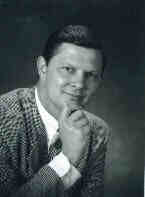The great Spanish philosopher, Jose' Ortega Gasset, reminded us that we human beings are the only creatures on the planet Earth that are born into a natural state of disorientation with our world. That is, while all other creatures are guided by instinct they are unaware, and they don't have the capacity to question other creatures. The human creature was given the godlike power to create his or her own life, good or bad. Each of us does exactly that, all the years of our lives.
Every day, we put in place actions and ideas that will determine the shape and substance of our tomorrow. For some, those ideas and actions lead inevitably to extraordinary achievement and rewards. For many they tend to lead to a kind of middle ground in which great numbers of people take their cues from each other, without question or consideration. And for some, those actions and ideas lead to repeated frustration and problems, and they spend their lives in the bottom layers of the socioeconomic pyramid.
Success or failure as a human being is not a matter of luck, circumstance, or fate. Success in life is not secured to a select few who without their choices just wake up successful. It's a matter of following a common laws God has sown into the earth.
Attitude has changed more lives, brought about more success stories, helped create more millionaires, and saved more careers and marriages than any other subject known to man. And rules we talk about apply to any situation, under any and all circumstances. We never have to say, "I wonder what will work in this particular situation." All we have to do is make these ideas our own. And we begin with what I call "The Magic Word: - ATTITUDE."
We all want good results from life, in our home, in our work, and in all our contacts with other people. The most important single factor that guarantees good results, day in, day out, all the months and years of our lives, is a healthy attitude! Attitude is the magic word.
Attitude is defined as "the position or bearing as indicating action, feeling or mood." And it is our actions, feelings or moods that determine the actions, feelings or moods of others. Our attitude tells the world what we expect in return. If it's a cheerful, expectant attitude, it says to everyone with whom we come in contact that we expect the best in our dealings with our world.
You see, we tend to live up to our expectations. And others give to us, as far as their attitudes are concerned, what we expect. Our attitude is something we can control. We can establish our attitude each morning when we start our day - in fact, we do just that, whether or not we realize it. And the people in our family - all the people in our world - will reflect back to us the attitude we present to them.
It is, then, our attitude toward life that determines life's attitude toward us. Cause and effect. Everything we say or do will cause a corresponding effect. If we're cheerful, glad to be experiencing this miracle of life, others will reflect that cheer back to us. We are the kind of people others enjoy being around.
You and I are responsible for our lives. You and I produce causes all day long, every day of our lives. The environment can return to us only a corresponding effect. That's why I say that each of us determines the quality of his or her own life. We get back what we put out.
Here's a way to evaluate the quality of your attitude in the past: Would you say that people tend to react to you in a smiling, positive manner, giving you friendly greetings when you appear? Your answer to that question will tell the story.
As soon as a person begins to change, his or her surroundings will change. And it works like this: great attitude, great results; good attitude, good results; fair, or average, attitude, fair, or average, result; poor attitude, poor results.
So each of us shapes his or her life. And to an altogether unexpected extent, the shape and texture, the quality or lack of quality, of our lives is determined by our habitual attitude. It sounds simple, doesn't it? But it's not quite that easy. For most of us, learning this new habit takes time. But once it becomes a habit-knit part of our lives, our world will change as dramatically as it would if we would if were walking from a dark cave into the bright light of day.
Most people never think about their attitudes at all. For most of them, it's a matter of beginning each day in neutral. Their attitudes are neither good nor bad; they are poised to react to whatever stimuli they encounter. If the stimulus is good, they will reflect it; if it's bad, they will reflect that, too. They are chameleons, going through their days reacting to whatever confronts them. And these are the people of our environment. That's why it's so important for us to control our attitudes, to make sure they're excellent or good.
It was William James of Harvard University, the father of psychology in America, who said, "Human beings can alter their lives by altering their attitudes of mind."
By Dr Tim McClure

No comments:
Post a Comment